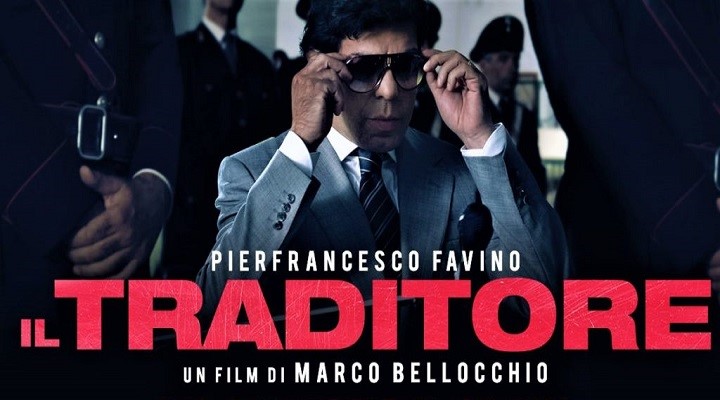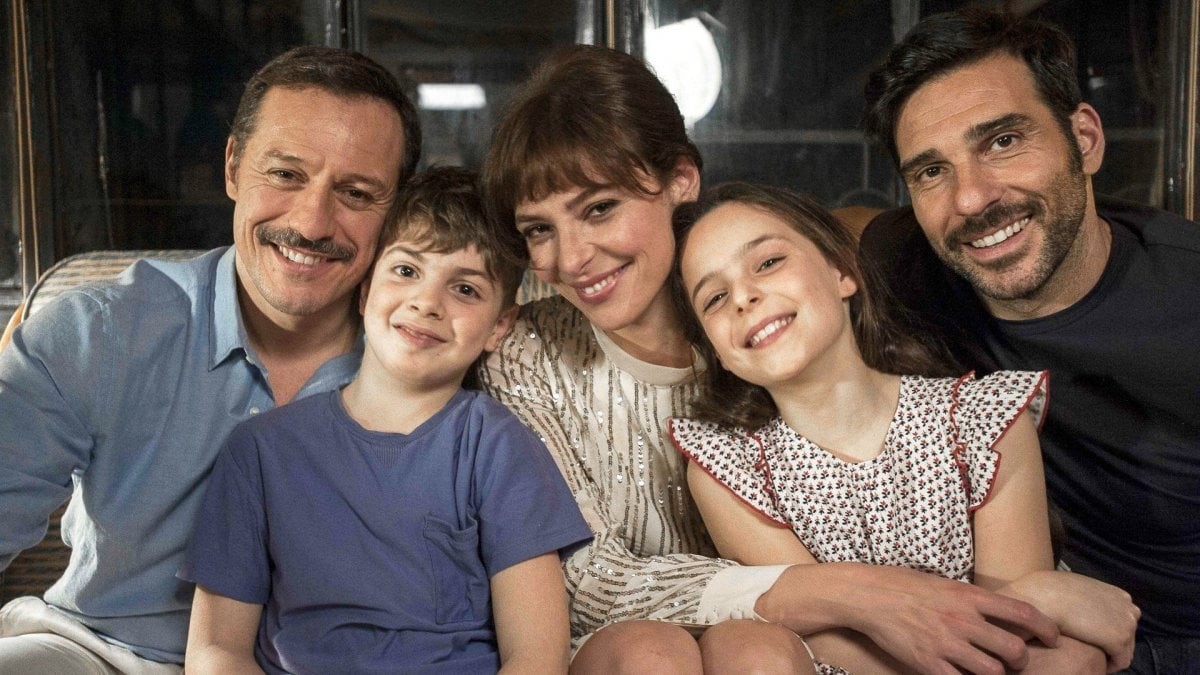
Italian Film Festival 2020
Il Traditore (The Traitor)
As I write, the 2020 Italian Film Festival in Canberra is about to finish, but for those passionate about Italy this festival has been very special and the memories will linger. In discussing the festival with others, a few people proffered that this festival had a special feeling for them, perhaps because all the genres of romantic comedy, crime, and children’s story (for example Pinocchio) triggered a positive response in a pandemic year. For Italians and Australians who have been disappointed in not being able to visit family and friends or holiday in Italy, this year has been disappointing, even painful. Through this film festival in an indirect way people have been able to feel love and solidarity with Italians: they immerse themselves in films, hear Italian, and the subject matter of the films themselves seem to elicit an authenticity of feeling.
While I have seen many of the films on show in the festival, the film I have chosen to review is Il Traditore, the Traitor, of 2019, the winner of the prestigious Best Film, Best Director, Best Original Screenplay, Best Actor, to name only a few awards given by the Accademia del Cinema Italiano. Marco Bellocchio, its famous director, has chosen real life drama when in the 1980s hundreds of adherents of the Corleone Mafia were brought to trial; and the key for the State’s initial success in a series of trials against them in Palermo was the participation of Tommaso Buscetta, who testified against them in court. For the Corleone adherents this betrayal was shocking.
One aspect that makes this film particularly interesting is that Buscetta had charisma, initially seen at a party when dressed in his sartorial elegance, with his complicated family of three wives and children, as he observes the two gangs dancing and celebrating their new direction in the heroine trade. Buscetta is nervous and on guard, a sign of his intelligence.
Later, Buscetta learns from his Brazilian hideout, (the background scenery of the Palermitan coast of and of Bolivia lends additional colour to this film) that members of his family had been murdered, as the Corleoni have decided to go it alone. He then made the difficult decision to break the oath of omertà of Cosa Nostra and get in touch with the Italian police at whose head was the famous judge, Giovanni Falcone, and reveal the violent dastardly deeds of the newcomers. And yet, it was important to Buscetta that his decision to betray was under his terms of staying true to himself, as ‘uomo d’onore’, the initial oath taken when he was very young, and not as a ‘pentito’, that is, someone who wants to exit from the Mafia.
It is at this point that the interest of the film really takes off. It is fascinating to observe his relationship with Giovanni Falcone who interrogated him and who absolutely needed Buscetta’s betrayal if the trials were to succeed. Another aspect of great interest to an Australian audience was the nature of the Palermo trials: the arrested men were kept in huge cages at the back of the large court, and an individual accused could come forward and interrogate those giving evidence, such as Buscetta.
I believe Il Traditore deserves its numerous accolades. If you missed the movie in this festival you will almost certainly be able to see it later in Canberra as it will be released on 27th November 2020 in American cinemas, and no doubt will pass to Australian cinemas.
Julie Docker
La Dea Fortuna (The Goddess of Fortune)
Arturo e Alessandro hanno una relazione da quindici anni, ma il loro rapporto si ritrova in crisi dopo anni di monotonia. Il loro equilibrio viene sconvolto quando una loro vecchia amica, Annamaria, va a far loro visita per affidar loro i suoi due figli mentre fa alcuni controlli in ospedale. Come faranno Arturo e Alessandro a riparare il loro rapporto mentre cercano di imparare ad essere figure di riferimento per i piccoli Martina e Sandro?
Famiglia, malattia, crisi di coppia e omosessualità: Ferzan Ozpetek decide di trattare temi da lui già esplorati in precedenza, come in ‘Napoli velata’ e ‘Le Fate Ignoranti’ e lo fa senza cadere mai nel banale. La sceneggiatura è semplice ma scorrevole, i personaggi sono onesti e amabili, e ciò permette allo spettatore di affezionarsi a loro senza alcuno sforzo. Il film dura circa due ore, ma ci si dimentica facilmente del tempo che passa. Tra il cast principale, spicca la superba performance di Jasmine Trinca nel ruolo di Annamaria, ma anche gli altri attori dimostrano di essere più che all’altezza.
A mettere in moto la trama è il tema onnipresente dell’amore, rappresentato in modo umano e in continua evoluzione. La vita di ciascun personaggio è circondata dall’amore, che si manifesta con mille sfaccettature: come famiglia e amicizia, ma anche come delusione, rimpianto, malinconia. Alessandro e Arturo sono ad un punto molto delicato della loro relazione, ma lo spettatore non mette mai in dubbio l’amore genuino tra i due amanti. Dall’inizio alla fine della storia c’è un velo di positività che, seppur implicito, porta lo spettatore a pensare che tutto si risolverà per il meglio. Sebbene il film sia di carattere prevalentemente melodrammatico, non mancano momenti di leggerezza e pura comicità, grazie anche ad alcuni personaggi secondari, i quali fungono da rifugio e supporto per i due protagonisti.
Purtroppo, al giorno d’oggi il cinema Italiano tende a basarsi su stereotipi e luoghi comuni che circondano la cultura italiana, ma a ‘La Dea Fortuna’ non interessa. Il film non ha bisogno di cornici ed esagerazioni: il suo valore si cela nella sua semplicità.
Piccola menzione: il film era preceduto da un cortometraggio, diretto proprio da Jasmine Trinca, chiamato ‘Being My Mom’, dedicato al suo rapporto con la madre scomparsa tempo fa. Il film, dalla durata di 12 minuti, è ambientato in una Roma desolata, in cui si vedono solo una madre e sua famiglia, mentre vagano per le strade della capitale con una valigia pesantissima. Nel corso del loro viaggio le due protagoniste si scambiano continuamente i ruoli di madre e figlia, fino alla scena finale, che racchiude l’essenza di questo rapporto intricato. È un film tanto breve quanto intenso ed è, a parer mio, un piccolo pezzo d’arte che racchiude l’esperienza della maternità in un modo estremamente toccante.
Concetta Ziccardi
